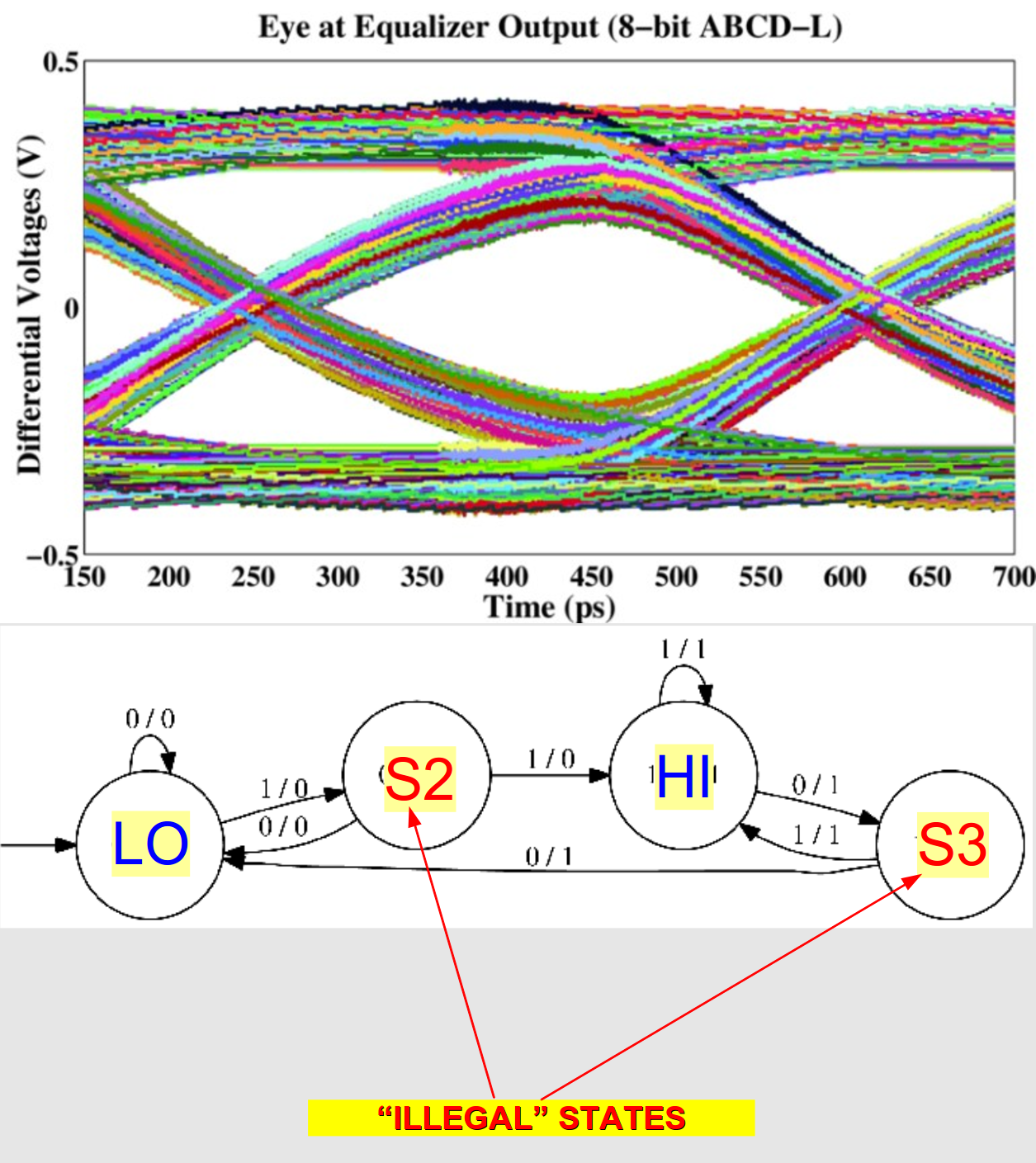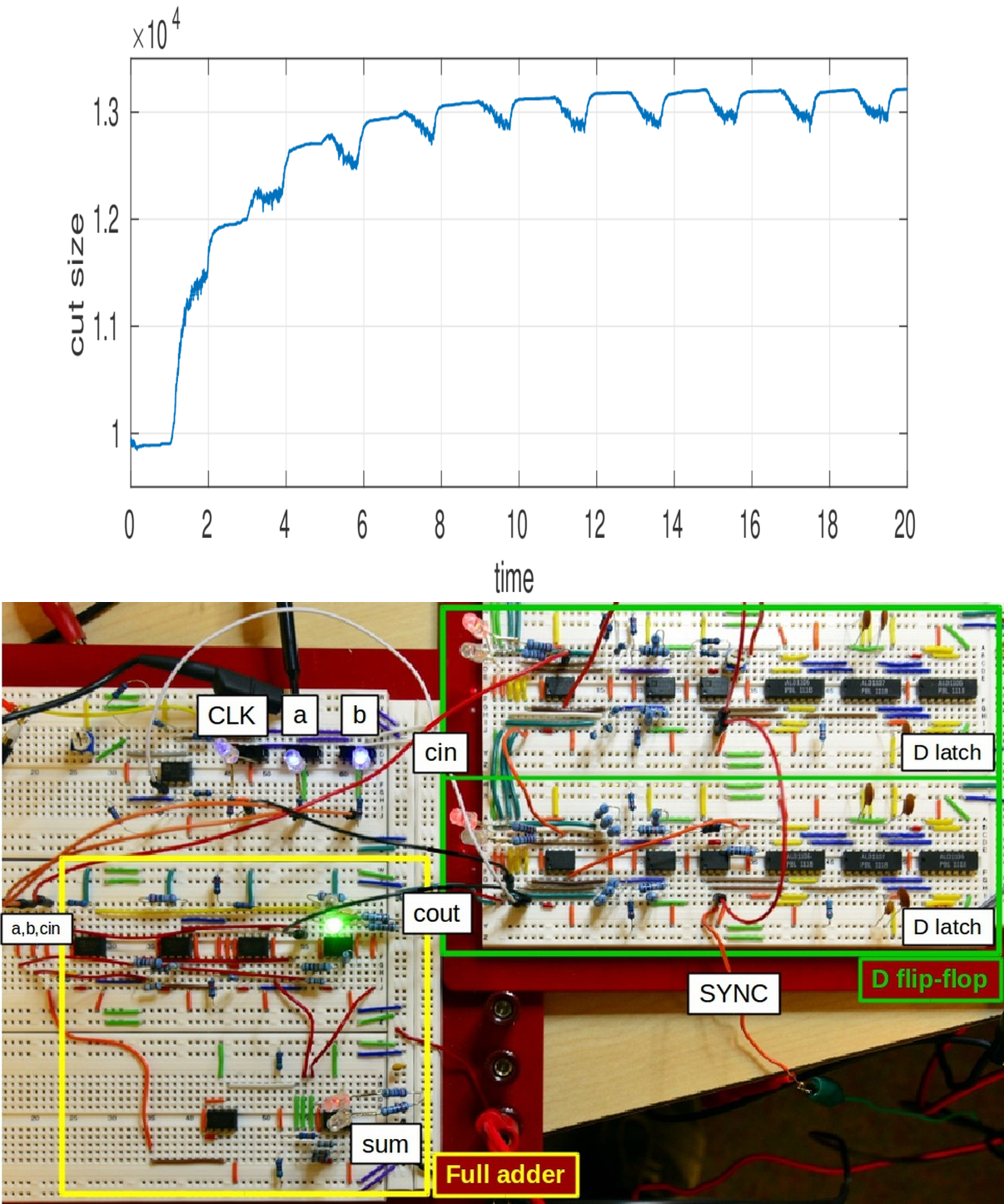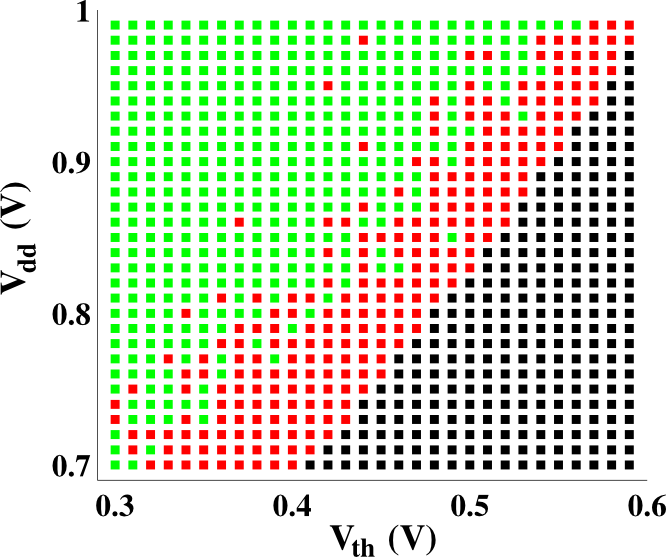Research in Jaijeet Roychowdhury's group
Our research encompasses:
next-generation computing schemes (concept through IC hardware and applications).
machine learning techniques and applications.
mathematical formulations, computational algorithms and software tools for designing, understanding, predicting and verifying the behaviour of cyber-physical, electronic, biological and nanoscale systems.
Selected ongoing research projects
OIM: Oscillator Ising Machines
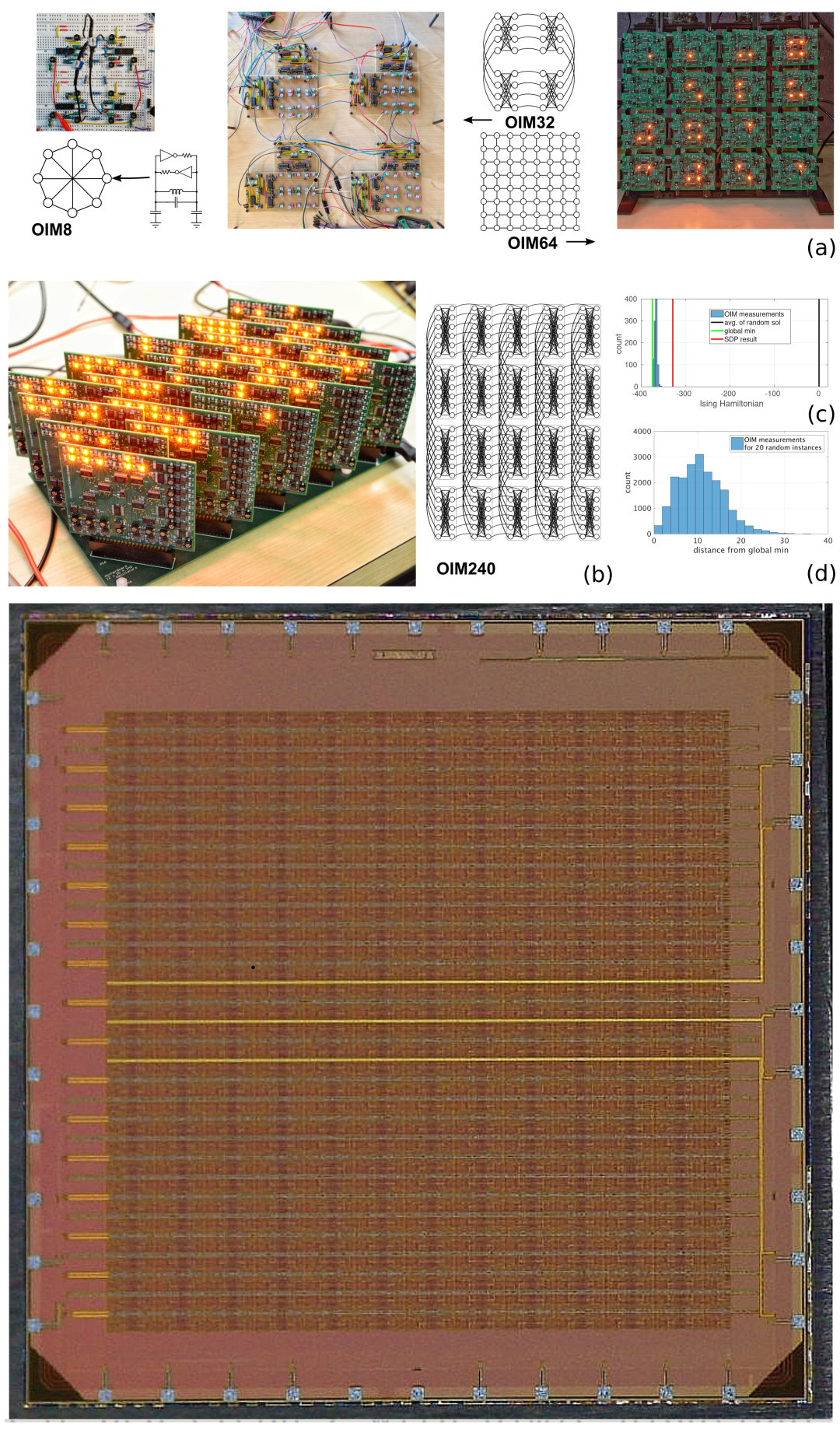 |
In recent years, a class of techniques has emerged that uses the innate physics of specialized analog hardware to solve difficult combinatorial optimization (CO) problems. These so-called Ising machines implement and solve the Ising model, a graph-based discrete optimization formulation into which many CO problems can be mapped. In 2017, we showed that appropriately-designed networks of interacting (i.e., coupled) oscillators function as Ising machines. Such Oscillator Ising Machines (OIMs) are based on a close mathematical connection between the phase dynamics of coupled oscillators and the cost function of the Ising model, called the Hamiltonian. We have shown that OIM performs competitively on the NP-complete MAX-CUT problem, finding superior cuts for several problems in a widely-used set of MAX-CUT benchmarks. Unlike prior Ising machine schemes, OIM is ideally suited for on-chip integration using, e.g., ring oscillators in well-established CMOS technologies. This brings several advantages, including easy scaling to large problem sizes (i.e., to many Ising “spins”), small size, low power, high speed operation and large-scale production at low cost. The power of OIM stems from the physics/mathematics of specially-designed oscillator networks, hence advanced or novel device technologies are not needed, though these can provide additional benefits if they turn out to be as practical as standard industrial CMOS technologies. The figure on the left shows the progression of our CMOS implementations of OIM. (a) in the upper figure shows OIMs of size 8, 32, and 64 built on breadboard and PCB using easily available discrete electronic components; (b) shows a 240-spin PCB version implementing a Chimera-like topology; (c) and (d) show histograms of results obtained by the 240-spin OIM. The lower figure is a die photograph of a recently-fabricated, custom-designed, IC version of OIM. OIM received the Bell Labs Prize in 2019, the Best Paper Award at UCNC 2019 and a Bakar Spark Award in 2020. Selected publications: P157, P155, P154, and P152 on our publications page. |
MAPP: The Berkeley Model and Algorithm Prototyping Platform
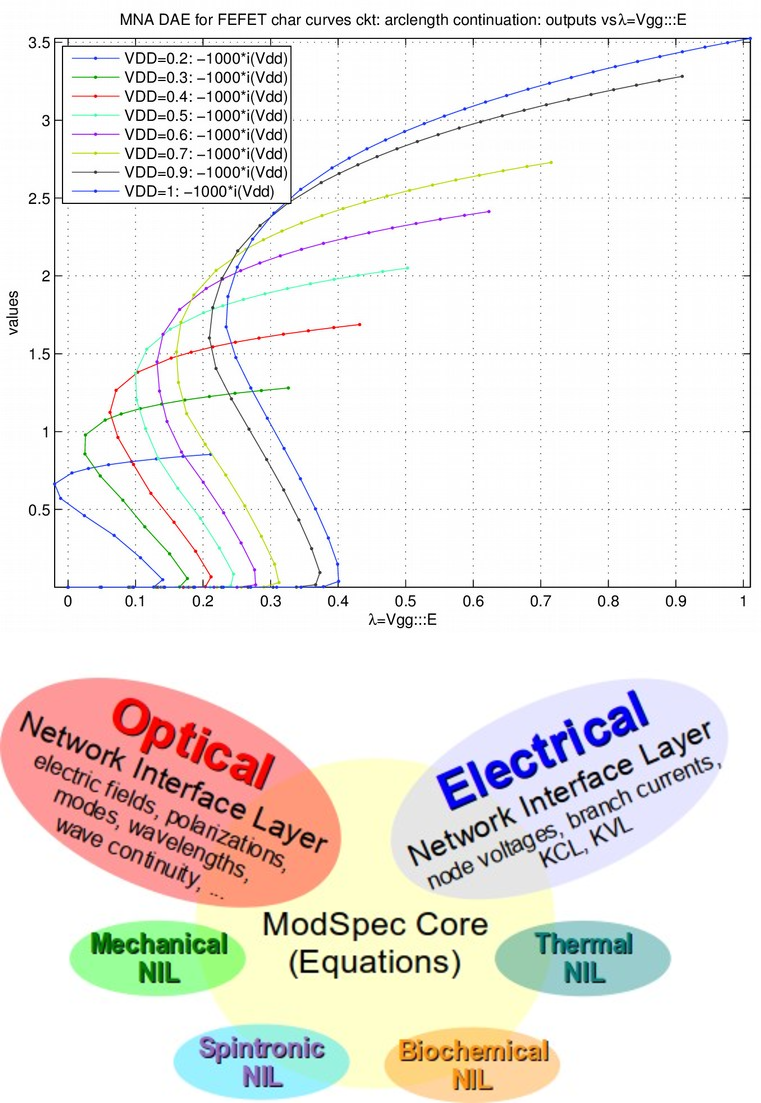 |
MAPP is a MATLAB/Octave based platform for quickly prototyping models and analysis algorithms for dynamical systems. It aims to alleviate a long-standing problem afflicting research in modelling and simulation of continuous systems: the lack of a well-structured infrastructure that is general, comes with standard models and algorithms, is usefully documented, and is easy to use, program in and extend. MAPP comes with a number of analysis algorithms for solving systems of nonlinear algebraic and/or differential equations, including DC, AC, transient, homotopy, harmonic balance, shooting, variability using polynomial chaos, etc.. It also has specialized algorithms for oscillators, including phase macromodel extraction, Adlerization and injection locking analysis. A companion tool, VAPP (Verilog-A Parser and Processor) translates Verilog-A model descriptions into MAPP's native model format (ModSpec). MAPP is designed for user-extensible multi-physics support and is suitable for CPS, electronic, bio-chemical, optical, mechanical, thermal, spintronic and other application domains. The upper figure on the left depicts folding voltage-current characteristic curves of a ferroelectric FET device, obtained using MAPP's homotopy analysis. The lower figure is a depiction of the structuring of ModSpec, MAPP's model description format. More information: MAPP on github, VAPP on github. Selected publications: P147, P146, P144, P143, P141, P139, P135, P126 and P122 on our publications page. |
▼ Click on the arrow for more
